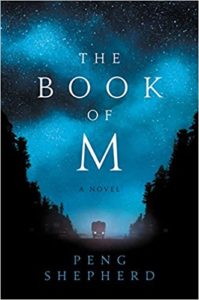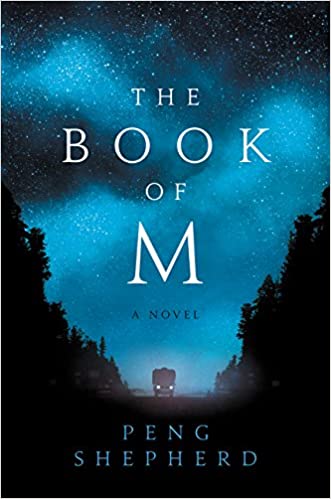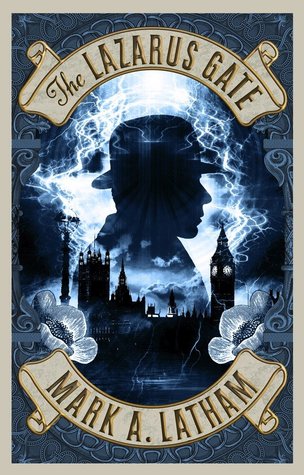
Around the world, people’s shadows begin to disappear, just blinking away without warning or explanation, never to return to the bodies they once belonged to. What is at first celebrated as a miracle quickly becomes a nightmare, as the Forgetting takes hold of the shadowless and they begin to lose their memories. With the loss of their memories comes a strange, terrible magic, the power to tear and distort and reshape the world, for as the shadowless forget, the world forgets too.
When Peng Shepherd’s The Book of M (2018) begins, two years after the first man’s shadow leaves him, the world we know is warped almost beyond recognition. Ory and his wife, Max, have been living in hiding with their shadows for two years. But then Max’s shadow disappears. As she begins to forget, she begins to alter the world around her. The handle on Ory’s knife turns green. A deer outside their shelter sprouts wings from its forehead. When Max runs away before she can forget and distort too much, Ory follows her through this frightening new world as she follows rumors of a mysterious being in New Orleans who may be able to cure the shadowless. It is a story about magic and memory, grief and hope, loss and human connection.
The Book of M weaves together the perspectives of four characters, Ory, Max, a young Iranian archer named Naz Ahmadi, and The One Who Gathers. The characters are ordinary people who have learned to survive in extraordinary circumstances, and I wanted them to succeed even if they were frustrating at times. The perilous post-apocalyptic landscape the characters travel through is disturbing and scary, and the brutality and violence they face made the book hard to read at times. The plot alternates between slower and more emotional sections and bursts of chaotic action. The book is full of twists, though none are quite as heart-stopping as a final twist that left me completely stunned.
What really drew me into this book was the setting: the new world in which inexplicable magic exists and people have to learn to survive and connect with one another in new ways. I was also drawn to the big questions that Shepherd asks throughout. The themes of memory, forgetting, and remembering – sacrificing memories of the old world but building something new in its place – was the most compelling element of this story to me. The magic of the shadowless can have devastating, destructive consequences, but it can also build profoundly beautiful new realities. To me, The Book of M is a story about how we respond to suddenly being thrust into a new reality, about all the terrible or beautiful ways of remaking the world after it has fallen apart. The questions of how we move on in the face of uncertainty, how we deal with the loss of what we once knew, and what kind of world we choose to imagine and build moving forward are more important now than ever.
The coronavirus pandemic is nothing like Shepherd’s “Forgetting,” thankfully, but it has still changed our lives all at once, and the world won’t fully go back to “normal” even when the worst of it is over. The pandemic has only made clearer that the future is uncertain. What will we let go of, what will we remember, and what will we build and sustain going forward into this new world? The Book of M is a haunting read that left me both heartbroken and hopeful, provoking ruminations about human nature, magic, and memory long after I put it down.
A copy of this book was provided by the publisher for review.





